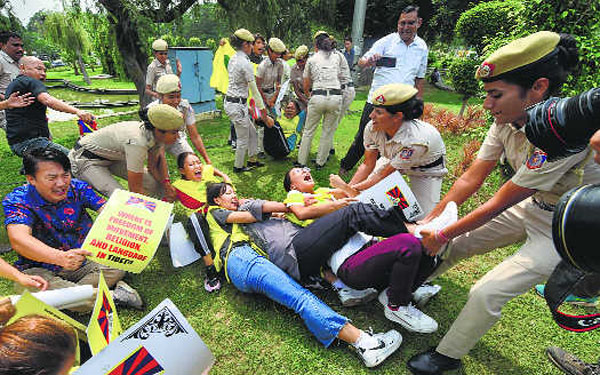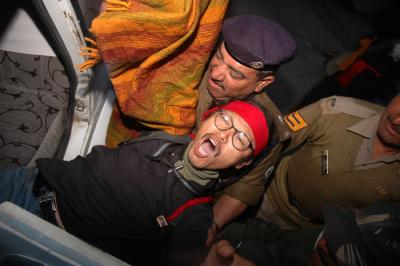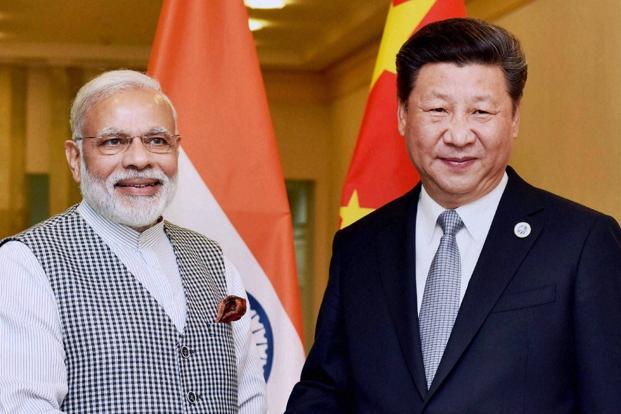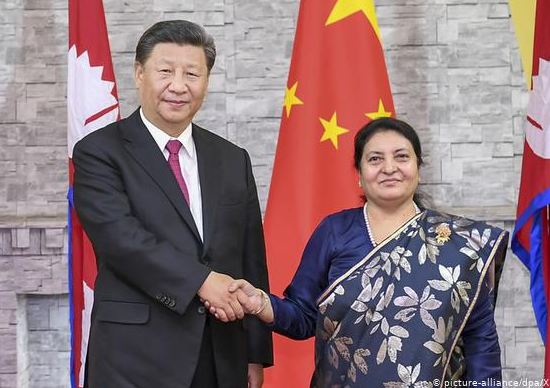
Security forces in India and Nepal arrested numerous Tibetans last week, in advance of state visits from Chinese President Xi Jinping.
Police in Chennai, Tamil Nadu, arrested several groups of Tibetans ahead of an informal summit between the Chinese President and Indian Prime Minister Narendra Modi in Mamallapuram, near Chennai. The meeting was the second of its kind between the two leaders following one in China’s Hubei province last year.

On Friday October 11, five Tibetans who sought to protest outside the ITC Grand Chola where President Xi Jinping was staying, were taken into custody by Chennai police, while a further six Tibetans were detained at Chennai airport. Earlier in the week, nine Tibetan activists were arrested, including writer Tenzin Tsundue, on suspicion of planning a protestduring the summit. Local sources said police in fact detained 42 Tibetans in the lead-up to the summit, but freed the majority after they agreed not to protest against the visit from China’s President.
In a statement, the prominent Tibetan support group The Core Group for Tibetan Cause – India, condemned the arrests, referring to them as an “illicit show of power and administrative machinery that crushes the common people’s voice against prevailing injustices”. They urged the Tamil Nadu government to immediately release all those arrested. Furthermore, a spokesperson for the human rights group People Watch reiterated that those arrested “have not even protested, they just want a silent protest.”
At the summit, India and China agreed to set up an economic and trade dialogue mechanism to enhance trade relations and help to address India’s concerns regarding its US$50 billion (£40 billion) trade deficit with China. The two nations also pledged greater cooperation to combat domestic terrorism, however issues concerning Kashmir, amongst other contested topics, were not raised.

Following his meeting with Prime Minister Modi, China’s President flew for a state visit to Nepal, the first from a Chinese head of state in 23 years, to meet President Bidhya Bhandari and other leaders. He announced 3.5 billion RMB (US$0.5 billion / £0.4 billion) in support of the country’s development programmes, and progress was made toward an extradition treaty among other measures to consolidate China-Nepal relations.

Ahead of the Nepal summit, security officials in Kathmandu prevented 33 Tibetan delegates from returning to the country following their meeting with fellow exile groups in Dharamsala, India. One delegate told the publication RFA that “we are not allowed to go back to Nepal because Chinese President Xi Jinping is visiting…and therefore until then we are stuck here.” The US-based International Campaign for Tibet (ICT), also reported that an additional 18 people were arrested in Kathmandu ahead of the Chinese President’s arrival, including two Nepali shopkeepers who were selling wares showing the Tibetan flag.
Nepal-based Khabarhub reports that China was trying to induce Nepal to sign an extradition treaty during Chinese President Jinping’s visit. The report said that the experts fear that China’s aim is to extradite Tibetans involved in ‘anti-China’ activities in Nepal and were recommending that treaties of this nature should be thoroughly discussed and not signed under pressure. However, The Economic Times reports that Nepal government has shelved the extradition treaty at the last minute.
Tibetan Activists Released
The Tibetan activists jailed in advance of Chinese President Xi Jinping’s visit to Chennai last week have been released on bail. Prominent writer and activist Tenzin Tsundue was held for a longer period, he remained in custody in Puzhal Central Jail in Chennai for 12 days and was released on October 17. Phayul has reported that all those who had been arrested have been forbidden from leaving Chennai city during the next 15 days and directed to make a daily appearance at the local police station.




 Print
Print Email
Email